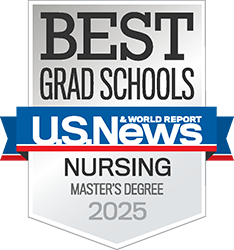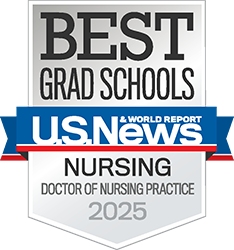Confidently caring for children with tracheostomies Acorda develops scale to assess parents’ self-efficacy

Caring for children with tracheostomies can be incredibly challenging, and Cizik School of Nursing at UTHealth Houston Assistant Professor Darlene Acorda has developed a scale to measure how confident parents feel in performing the vital tasks involved.
A variety of conditions can prevent sufficient air from reaching the lungs. When this happens, a surgeon creates a hole in the windpipe to aid breathing – a tracheostomy – that may be temporary or permanent. Parents of children with tracheostomies must master tasks of day-to-day care and learn to manage emergencies, such as lifesaving CPR.
“Despite the training provided by pediatric hospitals before discharge, many caregivers struggle when they transition from the hospital to home,” said Acorda, PhD, RN, CNE, CPNP-PC. “This can lead to high levels of stress and a lower quality of life once a hospital discharges a child, as well as hospital readmissions and increased risk for complications.”
To gain further insights and help better prepare caregivers, Acorda will use a $5,000 Dean’s Research Award for her study “Development and Psychometric Evaluation of the Tracheostomy Self-Efficacy Scale (TSES).” Validation testing of the scale is already underway, and the grant will enable Acorda to expand the project to a second hospital.
“Self-efficacy – how strongly someone believes in their ability to handle specific tasks – plays an important role in caregiving,” said Acorda. “Research shows that caregivers with higher self-efficacy experience less stress and burden. The team believes improving self-efficacy in tracheostomy care could reduce the challenges these families face.”
While hospitals have introduced advanced training methods, like high-fidelity simulations, to boost caregiver confidence, more research is needed on how effective these interventions are. Most existing tools focus on broad issues like caregiver stress and quality of life rather than on specific skills related to tracheostomy care.
Ultimately, Acorda hopes to recruit 300 English-speaking caregivers of children up to age 21 who have had tracheostomies performed at two local hospitals. Participants will complete a survey assessing their confidence in performing key tasks.
However, she notes that the scale is not intended solely for use in the hospital setting. It also has the potential to identify gaps and bolster preparedness in parents already providing tracheostomy care at home.
“The development of the TSES is a major step in supporting caregivers of children with tracheostomies,” said Acorda. “With this validated tool, we can inform trainings to improve caregiver skills, reduce their stress, and ultimately provide better care for these children with complex medical needs.”
Co-investigators on the project are Karla Abela, PhD, RN, CCRN, CPN, assistant professor in the department of graduate studies at the Cizik School of Nursing; Joseph Hagan, ScD, a statistician at Texas Children’s Hospital; Andrea Bradford, PhD, associate professor of medicine-gastroenterology at Baylor College of Medicine; and Akisha Cannon, RN, BSN, CCRN, tracheostomy coordinator in the pediatric intensive care unit at Texas Children’s.



